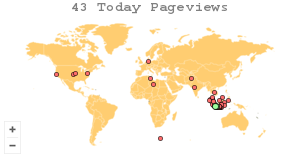MULTIKULTURALISME DALAM ALQURAN
DOI:
https://doi.org/10.47498/bashair.v2i1.1152Keywords:
Multiculturalism, Concept, Ummah, PeopelAbstract
This study aims to find out how multiculturalism is in the perspective of the Koran, what is the opinion of the mufassir regarding the verses of multiculturalism. And how multiculturalism affects the substance of the season. This research is library research. By collecting data related to this research, then described based on the data obtained and analyzed. The data collection technique used is by collecting books, books and articles related to this title. There are three things that are the results of this research, First, that the Qur'an supports the concept of multiculturalism, because the Qur'an also talks about tribes and nations (Q.S. Al-Hujurat/48: 13), Allah swt., also makes humans not in one people (types of people). ) only (Q.S. Al-Maidah/5: 48), and the Qur'an commands Muhammad, peace be upon him, to be kind to all mankind (Muslim non-Muslims) (Q.S. Al-Anbiyā'21: 107). Second, the opinion of the commentators regarding the verses of multiculturalism is, indirectly that they believe in multiculturalism in the Qur'an, such as Abū Ja'far aṭ-Ṭabarī (d. 310 H) and Ibn Kathir (d. 774 H) interpret the word sawa' by treating anyone fairly regardless of the subject, whether he is Muslim or non-Muslim. Third, the indicators for the multiculturalism verse are, if found in the Qur'an, words that are (a) global interjections, such as 'yā ayyuhā an-nās', (b) equality/justice words, such as 'sawā', (c) ummah, such as 'ummatun.
References
Andre Ata Ujan, e. a. (2011). Multikulturalisme: Belajar Hidup Bersama dalam Perbedaan. Jakarta: PT Indeks.
Arifinsyah. (2013). Multikultural Kebangsaan: Kajian Terhadap Kearifan Lokal Sumatera Utara. Bandung: Citapustaka Media Perintis.
asy-Syāfi’īy, F. a.-D.-T.-R. (2000). Mafātiḥ al-Gaib (Vol. 17). Beirut: Dār al-Kutub al-‘Ilmiyyah.
aṭ-Ṭabarī, A. J. (2009). Tafsir Ath-Thabari (Vol. XIII). (A. S. Abdul Somad, Trans.) Jakarta : Pustaka Azzam.
Azra, A. (2007). Identitas dan Krisis Budaya, Membangun Multikulturalisme Indonesia. Jakarta: Logos Wacana Ilmu.
Blum, L. (1991). Antirasism, Multicuturalism, and Interracial Community: Three Educational Values for A Multicultural society. Boston: University of Massachussets.
Hamka. (1988). Tafsir al-Azhar (Vol. XXVI). Jakarta: Pustaka Panjimas.
Katsir, I. (2004). Tafsīr Ibnu Kaṡīr. (M. A. Ghaffar, Trans.) Bogor: Pustaka Imam asy-Syafi’i.
Mahfud, C. (2009). Pendidikan Multikultural. Yogyakarta: Pustaka Pelajar.
Muslim. (t.t). Ṣaḥīḥ Muslim (Vol. VIII). Beirut: Dār al-Jayl.
RI, D. A. (2001). Al Quran dan Terjemahnya. Semarang: CV Asy –Syifa.
Shihab, M. Q. (2002). Tafsir al-Mishbah: Pesan, Kesan dan Keserasian al-Qur’an (Vol. XII). jakarta: Lentera hati.
Tilaar, H. (2004). Multikulturalisme: Tantangan-tantangan Global Masa Depan dalam Transformasi Pendidikan Nasional. Jakarta: Grasindo.
Yaqin, M. A. (2005). Pendidikan Multikultural: Cross-Cultural Understanding untuk Demokrasi dan Keadilan. Yogyakarta: Pilar Media.
Downloads
Published
Issue
Section
License
Authors who publish articles in Basha'ir: Jurnal Studi Al-Qur'an & Tafsir agree to the following conditions:
- The author retains copyright and grants the Basha'ir Journal the right from the first publication with the work simultaneously licensed under a Creative Commons Attribution-ShareAlike 4.0 International (CC BY-SA 4.0) license that allows others to make changes, adjust and build on the work with recognition of the author's work and initial publication in the Journal.
- Authors are allowed to copy and redistribute published versions of works in journals (for example, posting them to institutional repositories or publishing them in a book), with recognition of their initial publication in Basha'ir: Jurnal Studi Al-Qur'an & Tafsir.
- Authors are allowed and encouraged to post their work online (for example, in institutional repositories or on their websites) before and during the submission process, as it can lead to productive exchanges, and increase citations of published works






